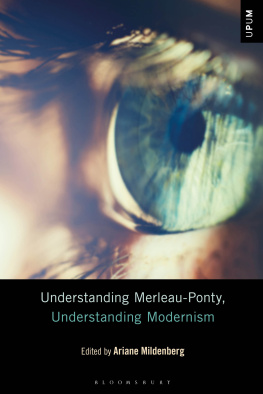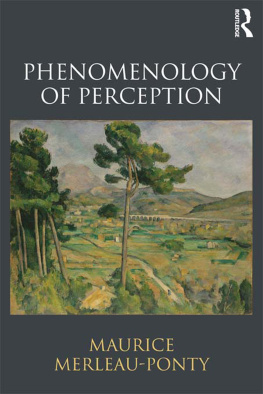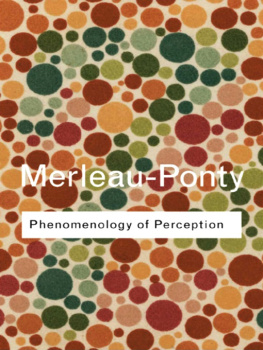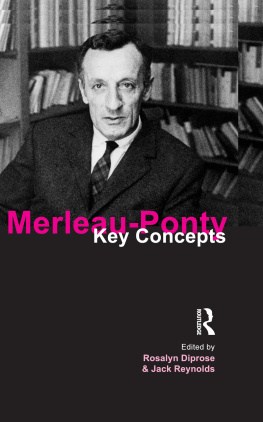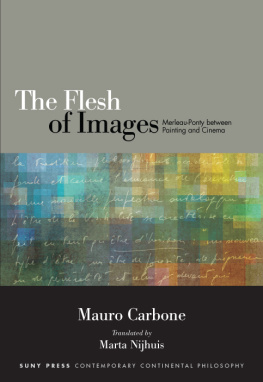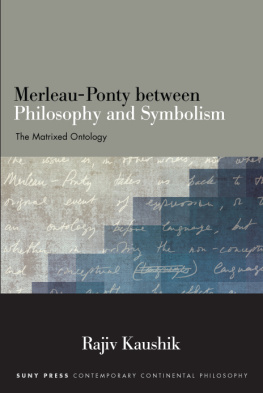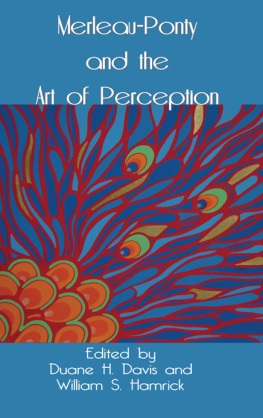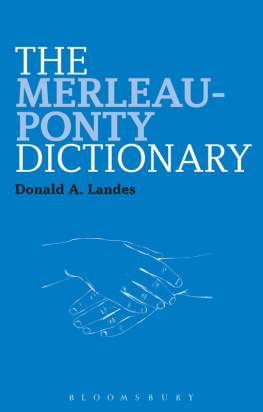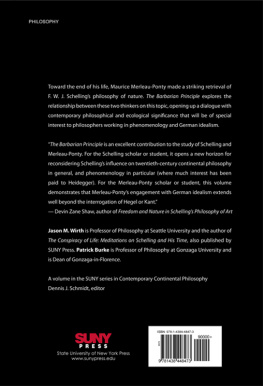Taylor Carman - Merleau-Ponty (Routledge Philosophers)
Here you can read online Taylor Carman - Merleau-Ponty (Routledge Philosophers) full text of the book (entire story) in english for free. Download pdf and epub, get meaning, cover and reviews about this ebook. year: 2008, publisher: Routledge, genre: Science. Description of the work, (preface) as well as reviews are available. Best literature library LitArk.com created for fans of good reading and offers a wide selection of genres:
Romance novel
Science fiction
Adventure
Detective
Science
History
Home and family
Prose
Art
Politics
Computer
Non-fiction
Religion
Business
Children
Humor
Choose a favorite category and find really read worthwhile books. Enjoy immersion in the world of imagination, feel the emotions of the characters or learn something new for yourself, make an fascinating discovery.

- Book:Merleau-Ponty (Routledge Philosophers)
- Author:
- Publisher:Routledge
- Genre:
- Year:2008
- Rating:4 / 5
- Favourites:Add to favourites
- Your mark:
- 80
- 1
- 2
- 3
- 4
- 5
Merleau-Ponty (Routledge Philosophers): summary, description and annotation
We offer to read an annotation, description, summary or preface (depends on what the author of the book "Merleau-Ponty (Routledge Philosophers)" wrote himself). If you haven't found the necessary information about the book — write in the comments, we will try to find it.
Merleau-Ponty (Routledge Philosophers) — read online for free the complete book (whole text) full work
Below is the text of the book, divided by pages. System saving the place of the last page read, allows you to conveniently read the book "Merleau-Ponty (Routledge Philosophers)" online for free, without having to search again every time where you left off. Put a bookmark, and you can go to the page where you finished reading at any time.
Font size:
Interval:
Bookmark:

Merleau-Ponty
This is the best introduction to Merleau-Pontys work available. It provides a clear and lucid overview of the whole of Merleau-Pontys thought, presenting the central ideas and themes of his writings in an accessible yet rigorous way. As such, it will be of interest to beginners and advanced scholars alike.
Mark Wrathall, University of CaliforniaRiverside, U.S.A.
a wonderful exposition of Merleau-Pontys philosophy as a whole. It offers clear explanations of Merleau-Pontys ideas and some of the most significant theories and movements that influenced him, and shows how his thinking developed across the course of his life. In addition, Carman has written with great panache.
Komarine Romdenh-Romluc, University of Nottingham, U.K.
Carmans accounting is nuanced, closely argued, and exceptionally clear.
His introduction covers the whole of Merleau-Pontys considerable corpus, tracing its development and exhibiting its continued relevance for contemporary debates in phenomenology and psychology, philosophy of mind, and metaphysics. It will be enormously useful to teachers and students seeking an accessible introduction to Merleau-Pontys writings.
Wayne Martin, University of Essex, U.K.
This book is extremely well writtenvery clear and engagingand, with regard to its representation of Merleau-Pontys philosophy, the account is comprehensive and insightful. I would recommend this book as the first and main commentary for students to consult.
Sebastian Gardner, University College London, U.K.
Routledge Philosophers
Edited by Brian Leiter
University of Texas, Austin
Routledge Philosophers is a major series of introductions to the great Western philosophers. Each book places a major philosopher or thinker in historical context, explains and assesses their key arguments, and considers their legacy. Additional features include a chronology of major dates and events, chapter summaries, annotated suggestions for further reading and a glossary of technical terms.
An ideal starting point for those new to philosophy, they are also essential reading for those interested in the subject at any level.
Hobbes
A. P. Martinich
Leibniz
Nicholas Jolley
Locke
E. J. Lowe
Hegel
Frederick Beiser
Rousseau
Nicholas Dent
Schopenhauer
Julian Young
Freud
Jonathan Lear
Kant
Paul Guyer
Husserl
David Woodruff Smith
Darwin
Tim Lewens
Forthcoming:
Aristotle
Christopher Shields
Spinoza
Michael Della Rocca
Hume
Don Garrett
Fichte and Schelling
Sebastian Gardner
Rawls
Samuel Freeman
Heidegger
John Richardson
Taylor Carman
Merleau-Ponty
First published 2008
by Routledge
2 Park Square, Milton Park, Abingdon, Oxon, OX14 4RN
Simultaneously published in the USA and Canada by Routledge
270 Madison Ave, New York, NY 10016
Routledge is an imprint of the Taylor & Francis Group, an informa business
2008 Taylor Carm an
This edition published in the Taylor & Francis e-Library, 2008.
To purchase your own copy of this or any of Taylor & Francis or Routledges collection of thousands of eBooks please go to www.eBookstore.tandf.co.uk.
All rights reserved. No part of this book may be reprinted or reproduced or utilized in any form or by any electronic, mechanical, or other means, now known or hereafter invented, including photocopying and recording, or in any information storage or retrieval system, without permission in writing from the publishers.
British Library Cataloguing in Publication Data A catalogue record for this book is available from the British Library Library of Congress Cataloging in Publication Data A catalog record for this book has been requested ISBN 0-203-46185-1 Master e-book ISBN
ISBN 10: 0-415-33980-4 (hbk)
ISBN 10: 0-415-33981-2 (pbk)
ISBN 10: 0-203-46185-1 (ebk)
ISBN 13: 978-0-415-33980-3 (hbk)
ISBN 13: 978-0-415-33981-0 (pbk)
ISBN 13: 978-0-203-46185-3
For Caleb and Sophie
Acknowledgments
Abbreviations
Chronology
Life and Works
One
1. What Is Perception?
Summary
Further Reading
Intentionality and Perception
Two
1. What Is Intentionality?
5. Molyneuxs Problem
Summary
Further Reading
Body and World
Three
Summary
Further Reading
Contents
vii
Self and Others
Four
Summary
Further Reading
History and Politics
Five
Summary
Further Reading
Vision and Style
Six
Summary
Further Reading
Legacy and Relevance
Seven
Summary
Further Reading
Glossary
Notes
Bibliography
Index
Acknowledgments
I am indebted to many friends and teachers who have helped me understand Merleau-Ponty and phenomenology. In addition to the participants in the annual meetings of the International Society for Phenomenological Studies, I especially want to thank Lydia Goehr, Sean Kelly, Komarine Romdenh-Romluc, Mark Wrathall, and two anonymous readers for Routledge who offered invaluable critical feedback on the manuscript. My greatest intellectual debt is, as always, to Bert Dreyfus.
I am grateful for support I received from Barnard College during a sabbatical leave in the fall of 2005. Thanks also to my editors, Brian Leiter and Tony Bruce, for their support and patience during the rather long time I have spent writing this book.
Abbreviations
HUSSERL
Id I
Ideen, Erstes Buch
Id II
Ideen, Zweites Buch
Id III
Ideen, Drittes Buch
MERLEAU-PONTY
AD
Les Aventures de la dialectique / Adventures of the Dialectic.
HT
Humanisme et terreur. Essai sur le problme communiste / Humanism and Terror: An Essay on the Communist Problem.
N
La Nature: Notes, Cours du Collge de France / Nature.
Lil et lesprit / Eye and Mind, in The Primacy of Perception /
Eye and Mind, in The Merleau-Ponty Aesthetics Reader.
PM
La Prose du monde / The Prose of the World.
PP
Phnomnologie de la perception / Phenomenology of Perception (1962)
/ Phenomenology of Perception (Routledge Classics Edition) (2002).
RC
Rsums de cours, Collge de France 19521960 / Themes from the Lectures at the Collge de France, 19521960. In Praise of Philosophy and Other Essays.
S
Signes / Signs / The Merleau-Ponty Aesthetics Reader.
Next pageFont size:
Interval:
Bookmark:
Similar books «Merleau-Ponty (Routledge Philosophers)»
Look at similar books to Merleau-Ponty (Routledge Philosophers). We have selected literature similar in name and meaning in the hope of providing readers with more options to find new, interesting, not yet read works.
Discussion, reviews of the book Merleau-Ponty (Routledge Philosophers) and just readers' own opinions. Leave your comments, write what you think about the work, its meaning or the main characters. Specify what exactly you liked and what you didn't like, and why you think so.

